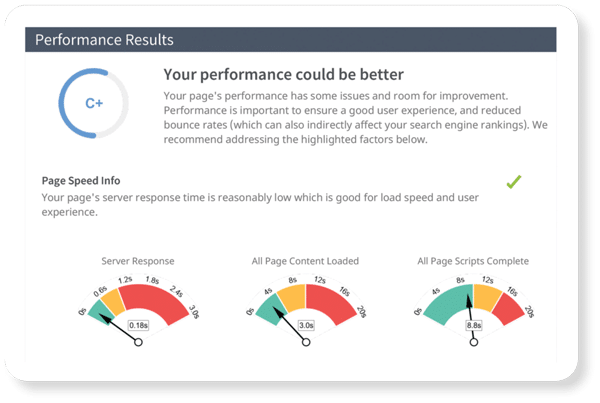Patients today have more opportunities than ever to share their experiences and opinions about medical professionals, which means prospective patients have more options to analyze doctors’ online reputations before making that first appointment.
It’s a form of empowerment long missing from doctor-patient relations — and one that patients are increasingly happy to use. A 2020 survey by SoftwareAdvice.com found that 71% of patients used online reviews as the first step in looking for a doctor or specialist. Around 40% said they were willing to consider going out of network for a highly-reviewed provider.
For many medical professionals, doctor reviews are nerve-wracking. Unlike other forms of online marketing, physicians believe they have no control over patient reviews (which isn’t entirely accurate).
Negative reviews, especially when relating to the very personal nature of a patient experience, can be extremely raw and angry. Once posted, they are difficult to get removed. They can sit there for years, showing up in search results, eroding a doctor’s reputation, and driving away potential patients.
In the SoftwareAdvice.com survey, 72% of respondents said they left very or somewhat positive reviews. Another 17% said they left neutral reviews. Only 10% said they had left slightly negative reviews, and a mere 1% left very negative reviews.
So if most reviews are positive, can you just ignore the minority that are negative?
Most reputation management professionals would say no. Responding proactively to negative feedback provides balance for other readers. Plus, it gives you a golden opportunity to present a positive and professional image for your practice.
Nobody likes criticism. Having a strategy in place reduces the chances that you’ll make a bad situation worse by responding in anger.
Your workflow for handling online reviews doesn’t have to be elaborate or onerous. Setting aside even 15 minutes a week can make a big difference in your practice’s online presence.
An excellent first step is to do a quick audit of sites that contain reviews of your practice and list them all. Make sure your profiles all have up-to-date information.
Once you have that list, make a schedule for you or your staff to review each site regularly. It doesn’t have to be daily or weekly — you just want to make sure you don’t have a bad review sitting out there for a year without noticing.
If this sounds like tedious work that your practice isn’t going to get done, you’d be surprised how simple reputation management software can make these tasks.
HIPAA (the Health Insurance Portability and Accountability Act) does not prevent you from responding to online comments. It does set some firm limits on what you can say within that response.
You cannot use any information that identifies the patient — including names, appointment dates, tests or test results, and diagnoses — even if the patient talks about those things in their own review.
Put simply: whether you’re being praised or criticized, you cannot directly acknowledge that a reviewer is, or has ever been, a patient of yours. If this sounds too complicated to manage internally, seek the help of online reputation management experts that focus on the healthcare industry.
Tips For Responding To Bad Reviews
So you’ve seen a bad online review and you’ve decided you can respond in a HIPAA-compliant way. Now what?
When tackling a bad review, one key thing to remember is that you are not trying to win an argument. In fact, the person who left the bad review isn’t even your primary audience — your audience is all the other people (including potential patients) who read the review and then read your response.
Remember, too, that you’re not trying to prove you’re smarter than the reviewer. Avoid defensive language and medical jargon or any hint of “talking down” to the unhappy patient. Responding with a condescending tone isn’t going to help you gain fans.
No matter how harsh the review, always start by thanking the person for their comments. Be polite, be professional, be positive — and keep it short.
Negative reviews can be hard to read, but make sure you take a moment to read them thoroughly. Is there something you can do to improve your customer service or quality of care? If you’re just not sure where to begin, there are tools that can help you automate this process, including guidance for how to respond appropriately.
Tips For Getting Positive Reviews
The best way to mitigate negative comments is to wrap them in a cozy blanket of positive reviews.
If a patient compliments your services, encourage them to share their experiences online. You might want to create a simple handout with your information and the sites you feel are most valuable for positive reviews.
Add a link to review sites in patient emails and remind them that you value all feedback.
While you’re at it, add links to review sites on your practice’s webpage. The simpler you make it for patients to post, the more likely they are to do it!
You cannot incentivize patients to post positive reviews with discounts or perks. It violates the terms of service on most review platforms and, if discovered, could lead to being banned from these sites.
We Can Help
Need to set up a review strategy that works for you and your practice? MyAdvice can help! Contact one of our marketing experts for more information about Review Power, our automated system that makes it easy to request and respond to reviews.


